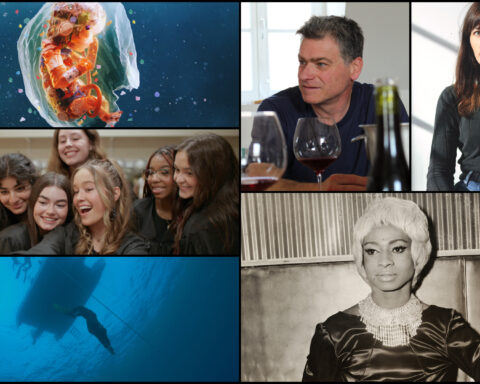Look to any bazaar or marketplace and you’ll find peddlers carefully jostling in hierarchical ways, where the louder, noisier and bigger characters get the lion’s share of attention.
For the factual producers and storytellers who descended on Washington, D.C., for the annual Realscreen Summit in January, it’s no different—except the ‘big’, ‘noisy’ characters are on the screen, and the lion’s share of attention is going to the producers behind them like Thom Beers. Think Deadliest Catch. Think Ice Road Truckers. Think Storage Wars. (I lost count of how many American broadcaster bios contained a reference to having a hand in making these shows happen.)
The phenomenal success of Beers and his programmes across the History, Discovery and A&E networks has spawned a lexicon of buzz words that rolled off of every broadcaster’s tongue at the Summit—seeking over and over to replicate these successes: “We want big, noisy, loud characters doing extraordinary things in unusual places but relatable in their stakes.” If it’s testosterone TV like Deadliest Catch or Gold Rush Alaska, think “colossal risks [life/death] and huge rewards (survival/food on the table).”
Another word in the limited lexicon is space, as in execs saying, “We’re competitive in the ‘home’ space” or “We’re moving into the male quest space”—as one exec said from Spike TV, before he launched into a treatise on the mytho-poetics of the hero. “It’s always the same story—it’s the eternal myth of the big male quest.” Read Joseph Campbell, he said, then let’s talk about heroes and villains (big ones), and the noisiest, largest characters you can find (male) on the biggest, scariest highest-stake adventure or quest of their lives. No more T&A.
And outside of this male ‘space’, what of women? There is no gender ratings-grabber in the Deadliest Catch vein except perhaps the Housewives brand or Dance Moms. And while there may be heroes and villains in Housewives, few are really struggling to survive (credit card limits don’t count), and they’re certainly not on a high-stakes adventure that could cost them their life. In other words, there is little that’s noble going on in “factuality” shows for or about women. No wonder the pitch competition was won by an idea about women going through Navy SEALs training. Booya for testosterone TV.
All of this is sobering for documentarians. First of all, it’s an utter waste of time for them to attend Realscreen unless they’ve got meetings pre-arranged with the small handful of documentary commissioners from mainly public broadcasters, or they want in on the factual-TV series game. And if a documentarian does indeed want to morph into a series producer, they’d better get over any fantasy that they’ll get to tell a big sweeping, world-historical or political story or visual essay. Unless it’s character based, forget it. And unless you come in with an agent or a known producer or entertainment lawyer, you can forget getting access to the big cable networks.
It’s sobering too for any Canadian producer seeking to create a hit factual show. By nature, Canadians are not typically ‘big’, ‘noisy’, ‘loud’, larger-than-life characters. And if we are, we’re not submitting casting tapes trying to get on TV or trying to negotiate a factual series deal. We’re not hunters, per se—we don’t have swamps—and except for the arctic (Ice Pilots NWT), dangerous quests and life-and-death stakes are played out in conditions often deemed too depressing for most broadcasters (Attawapiskat).
On the other hand, unlike our colleagues to the south, Canadian producers do have a distinct advantage. Thanks to CRTC policies and the Terms of Trade agreement between the independent production community and most broadcasters, producers don’t have .to sign their rights away to their own shows as they do in the U.S. Producers here may be handed less money to make them by Canadian broadcasters up front, owing to a smaller market and to their smaller purses, but the tradeoff is worth it. Sure, it’s a survival quest all its own for Canadian producers, with all the attendant headaches and stress, but one thankfully that will not televised.











